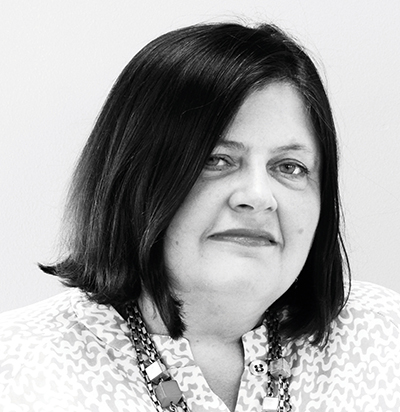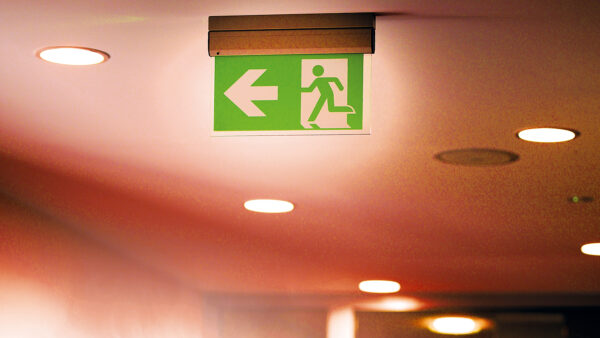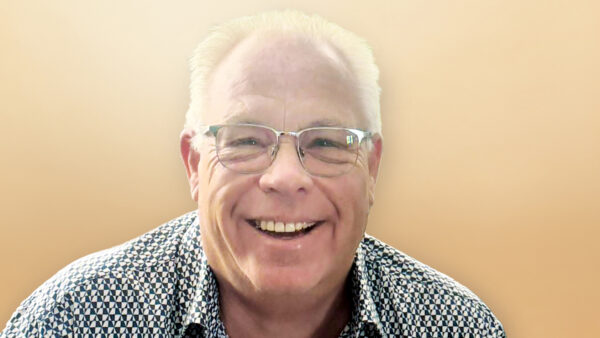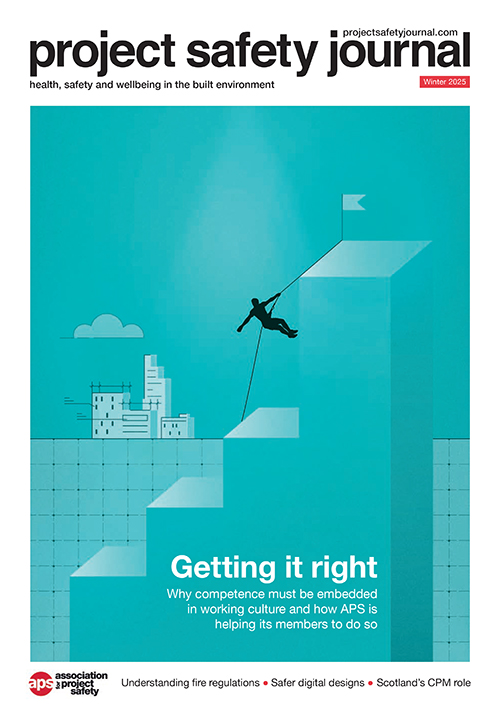
Mike Kehoe, managing director at C&D Demolition Consultants, tells Denise Chevin how the use of advanced technology is changing the industry and highlights the importance of appointing demolition contractors early.
Tell us about yourself and your company
I’m managing director at C&D Demolition Consultants – we advise clients on strategies for demolition and oversee demolition, but don’t do demolition ourselves. I’ve been in the demolition industry for 35 years, with 25 of those years at director and managing director level. I’ve been an APS member for many years.
C&D Demolition is one of the few companies around the world that offers third-party explosive expertise for explosive demolition. And we also offer consultancy services for dealing with asbestos.
We’re not a huge company – seven engineers and one student engineer, plus three support staff. We’re based in Liverpool and have another office in London. We’ve also recently opened an office in Qatar, as we’ve been working there quite extensively in the energy sector.
Tell us a bit more about what C&D does
Demolition is reverse engineering, so we look at the way a structure has been constructed and advise on how it can be demolished safely. We also handle all the logistical constraints that go with demolition, particularly in built-up areas. When we demolish a tall building in the centre of London, for example, we have to deal with London Underground or sometimes Network Rail and often the local road authorities when we’re working in city centres.
We also carry out a lot of principal designer work in large asbestos removal and explosive demolition.
Our role is to act as a conduit between the client and the contractor. We make sure the client is getting the right advice. And, when we act as a principal designer, we ensure the client is giving the right information to the contractor to ensure the work gets done safely. Likewise, we ensure the contractor is giving the correct information back to the client.
How did you get into demolition?
I’m a third-generation demolition contractor. My grandfather started a demolition company and my father worked for him. We’re now a fourth-generation firm as my son has joined. He’s just finished his construction degree at John Moores University.
CV: Mike Kehoe
2018 to present: Managing director, C&D Demolition Consultants
2012-18: Demolition consultant, C&D Demolition Consultants
2011-12: Demolition consultant, The Connell Group
2008-09: Heavy lift consultant, Techlift UK
2005-08: Managing director, Castlebridge Developments
1986-2005: Contracts director, Powell Demolition
I left school without any qualifications at 16 to work with my father, but at 17 he sent me back to school to do my O-levels. And, when I was working on site again, he sent me back to do my A-levels at night school. And then, when I’d got those, he said: “You need to go back and do a degree.”
So I did a part-time degree for five years at John Moores University in Liverpool, which I can tell you was difficult! And I’ve recently completed a master’s degree from the University of Wolverhampton in sustainable demolition. I was one of the first people in the world to get that qualification.
I think it’s so important to keep learning, and dismantling building components as we embrace the circular economy will be key.
Talk us through some of the particularly challenging demolition jobs you’ve worked on
One that comes quickly to mind took place in August 2016. An overloaded lorry hit a pedestrian bridge spanning the M20 close to Maidstone and near the junction with the M26, causing it to collapse on to the motorway. That closed the main route to the Channel Tunnel and Port of Dover.
It happened on a Saturday. I was appointed on the following Thursday and asked to design a methodology that would clear the collapsed bridge. We had 36 hours to demolish the bridge so that the M20 could be reopened and not delay traffic to the port. Despite the pressure, we managed it in 18 hours.
We’ve been lucky enough to win a World Demolition Award on three occasions. I’m pretty sure we’re the only consultancy company to have done that. One of those awards was for our work on the demolition of a large structure in St Helier, the capital of Jersey. This was a cable car built in the 1960s which used to take the tourists and people off to a fort on the highest point of St Helier.
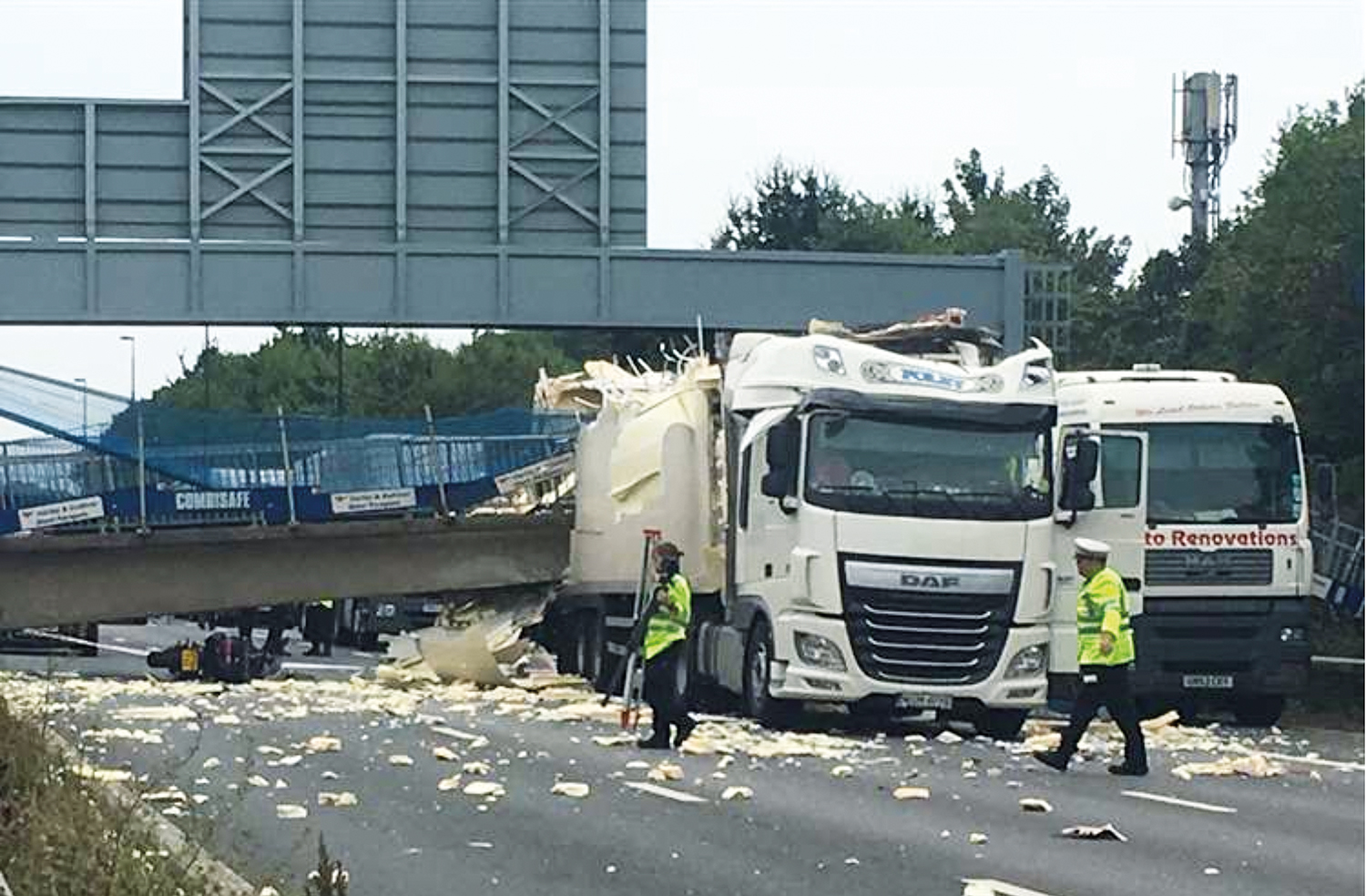
There were lots of houses underneath it, so we couldn’t just knock it down in one go. It had to be disassembled bit by bit and the sections taken down individually through the floors of the fort.
Another job we’re very proud of was demolishing a 32-floor tower block in central Glasgow, when we used a never-been-used-before method in the UK – a top-down system – in collaboration with an Italian demolition company.
The conventional demolition approach is to erect scaffolding around a building and then take it down by floor by floor. Instead, though, we created an enclosed structure with three floors and hydraulic legs.
We could use it to move down one floor of the building at a time and keep all the demolished material inside the structure. So no scaffolding, no noise and no dust. It’s now starting to be used all around the world.
That’s very innovative. Are there any other developments you think could improve demolition?
I’m convinced that demolition could be made safer. There’s one obvious way that could happen – appointing demolition contractors earlier in the project to allow more time to plan. Too often, demolition contractors are appointed on Friday and told to start on Monday – that is a recipe for disaster.
Early engagement was one of the key principles in the changes brought about when CDM [the Construction (Design and Management) Regulations] were amended in 2015. Generally speaking, that has had a massive impact on the demolition process. But even now contractors are not always given enough planning time.
Demolition’s image was always very macho – is that still the case? And what’s the reality?
The perception of demolition as a dirty industry with unsafe practices is completely out of date. This is now a fast-moving industry using advanced technology including robotics and remote control equipment.
We’re often told that young people – the Xbox generation – can’t work well. But from our point of view we want Xbox people to operate our machines because we use similar consoles to an Xbox. So we’re trying to encourage young people, of all genders, to join the industry. I’m really keen to share all the knowledge I have – it’s very important to me.
Demolition has traditionally been known as a male industry but we’re seeing more women now – including site managers. Just recently, a woman won the site manager of the year award. So, yes, things are changing – and they have to if we don’t want to stagnate.
What do you do outside of work?
I’ve been a mad keen Everton supporter for 51 years and go regularly with my son. I play golf. And I enjoy reading thrillers – Michael Connelly is my favourite author.
Mike Kehoe is leading the APS CPD events programme for autumn.





